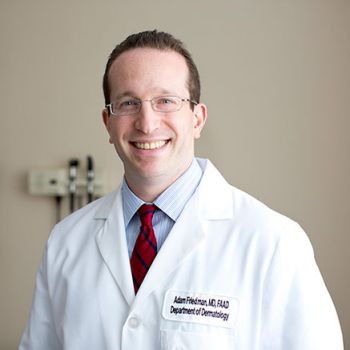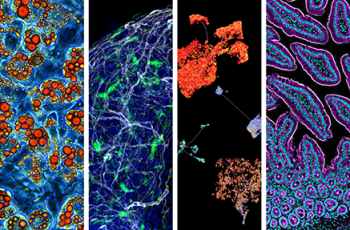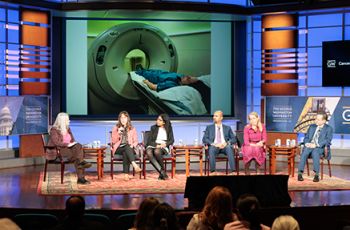
WASHINGTON (July 8, 2019) — Collagen powder is just as effective in managing skin biopsy wounds as primary closure with non-absorbable sutures, according to a first-of-its-kind study published in the Journal of Drugs in Dermatology by a team of physician researchers at the George Washington University.
The team investigated the efficacy of topical collagen powder compared to primary closure on the rate and quality of full-thickness wound healing through histopathological analysis of healing and comparison of symptoms and early cosmetic outcomes.
Collagen is best known as an essential structural component of several organs, importantly the skin, but it also plays a pivotal role as a signaling molecule in the regulation of all phases of wound healing. Therefore, externally applied, collagen powder has significant potential for wound healing and care due to its ability to stop bleeding, to recruit immune and skin cells central to wound healing, as well as stimulate new blood vessel formation, and can be left in wounds without causing irritation or facilitating bacterial growth.
“During normal wound healing, collagen acts as a scaffold for cellular entry and growth in the wound bed and encourages the deposition of new collagen,” said Adam Friedman, MD, interim chair of the Department of Dermatology at the GW School of Medicine and Health Sciences and an author on the study. “While collagen has been used as a wound healing adjuvant, a good comparison to the standard of wound care has been lacking.”
Friedman’s team administered two punch biopsies to eight volunteers and treated one wound with a daily topical collagen powder and the other with primary closure. Wounds were biopsied at four weeks for analysis and subjects were asked to rate the itch, pain, and treatment preferences throughout the process.
The researchers found that six out of eight collagen-treated wounds were completely healed after four weeks after initial wounding and all wounds were completely healed eight weeks after the second biopsy. Patients reported similar pain and itch for both primary closure and collagen, with most attributing the itch to the adhesive dressings rather than the wound itself. The team concluded that based on these findings, wounds treated with collagen powder healed at least as well as those treated with primary closure and that the powder can be applied safely for at least four weeks.
“Given the cost and time to place and remove sutures and the potential reimbursement for collagen, using topical collagen powder for punch biopsy wounds may be easier on the patient, not requiring an additional visit for suture removal and yielding an equivalent or possibly better wound healing outcome,” Friedman said. “Moving forward we need to further examine the parameters of collagen use on wounds, including duration of therapy and wound sizes.”
“A Head-to-Head Comparison of Topical Collagen Powder to Primary Closure for Acute Full-Thickness Punch Biopsy-Induced Human Wounds: An Internally Controlled Pilot Study” is published in the Journal of Drugs in Dermatology.


